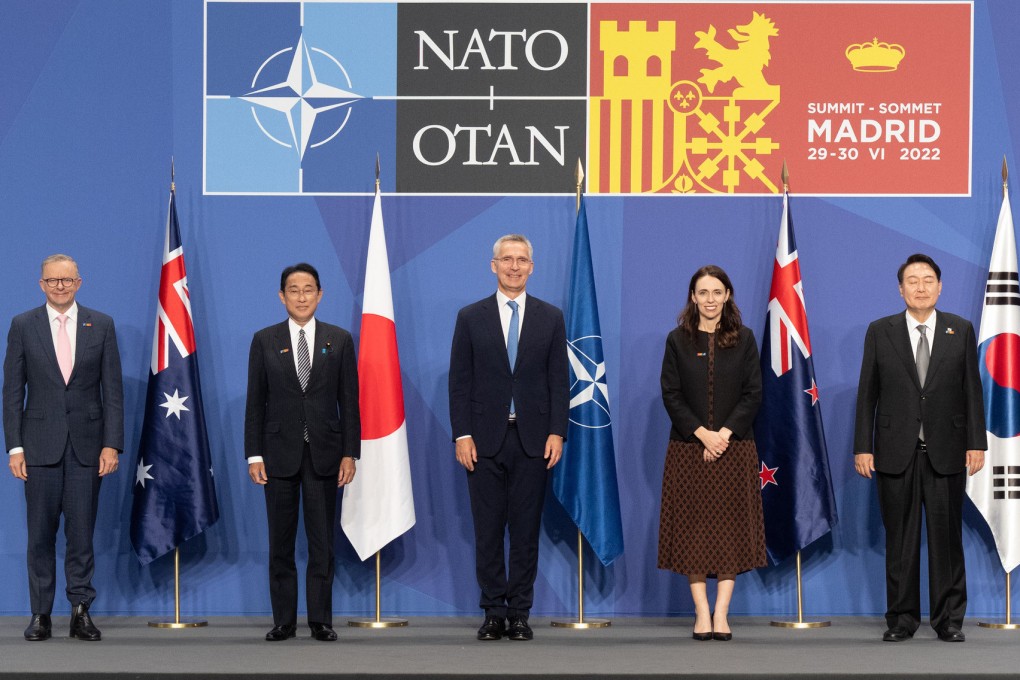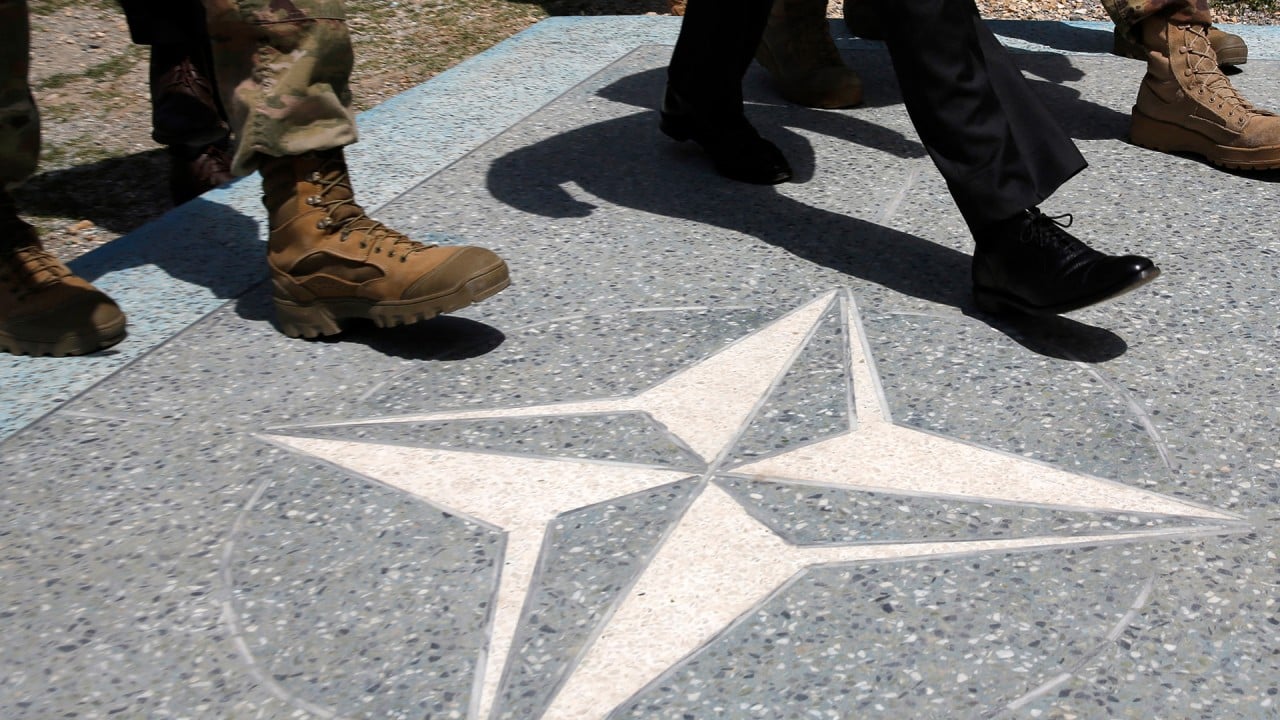Nato leaders say China is a ‘systemic challenge to Euro-Atlantic security’
- For the first time, the Western military alliance singles out China by name in its strategy document, which had not been updated for 12 years
- Beijing and Moscow’s ‘mutually reinforcing attempts to undercut the rules-based international order run counter to our values and interest’

While expected, the move reflects rising suspicion towards China among the Western military alliance, but also a recognition of Beijing’s growing military clout.
The strategy has not been updated since 2010, and since then China has been closing the military and economic gap with the United States and other Nato members.
The document took aim at China’s relationship with Moscow. Beijing has yet to condemn Russia for its war against Ukraine and has offered rhetorical backing for its regional claims.
“The deepening strategic partnership between the People’s Republic of China and the Russian Federation and their mutually reinforcing attempts to undercut the rules-based international order run counter to our values and interest,” the document said.
It accused Beijing of employing “a broad range of political, economic and military tools to increase its global footprint and project power, while remaining opaque about its strategy, intentions and military build-up”.

